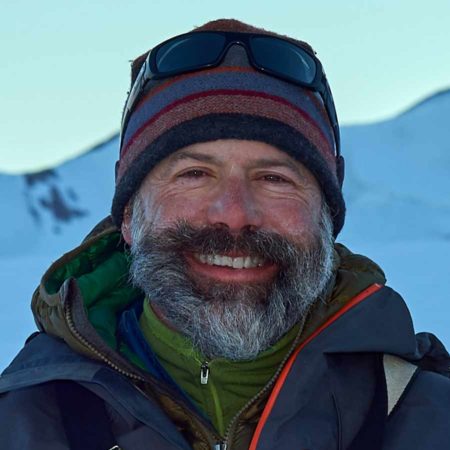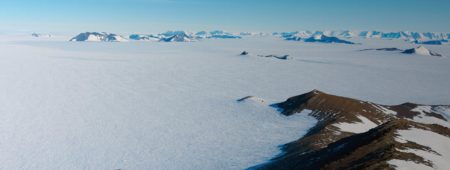Greg Balco, PhD

Greg Balco is an Earth scientist at the Berkeley Geochronology Center, which is a nonprofit, foundation-funded geochemistry research institute in Berkeley.
He received a Ph.D. from the University of Washington in 2004, for research into Earth science applications of trace nuclides produced by interactions between cosmic rays and surface rocks and minerals. One important application of this field is learning about ice sheet change in polar regions, and Greg’s subsequent research has focused on the Antarctic ice sheets. Over the past 20 years, he has worked with the National Science Foundation and U.S. Antarctic Program to plan and carry out 11 research expeditions to remote parts of Antarctica. Most of this work has involved developing and applying methods to exploit measurements of cosmic-ray-produced nuclides in areas of Antarctica that are not covered by ice at present to determine if and when the ice sheets were larger in the past. Of course, knowing how much bigger the ice sheets were during past cold periods is interesting, but not particularly relevant to predicting ice sheet and sea level response to potential future climate warming. Thus, more recent research has focused on developing and using subglacial bedrock recovery drilling systems to also learn about how much smaller ice sheets were during past warm periods, and how big their impact was on global sea level, by recovering geologic data from below the present ice sheet.
In addition to research focused on ice sheet change, Greg has published numerous scientific papers on technical aspects of cosmogenic-nuclide geochemistry; applications of noble gas geochemistry and gas diffusion in natural minerals; geochemistry applications to quantifying times and rates of processes active at the Earth’s surface, including glaciation, erosion, and sediment transport; and computational and data science aspects of these fields. He has an undergraduate degree from Williams College, a MS from the University of Maine, and a MS in Applied Mathematics and Ph.D. in Geological Sciences from the University of Washington. Prior to completing his Ph.D., he also worked in a variety of positions in the minerals industry and as a Congressional staffer. He is a visiting scientist at the Center for Accelerator Mass Spectrometry at Lawrence Livermore National Laboratory, a Fellow of the Geological Society of America, and a member of Phi Beta Kappa and Sigma Xi.
